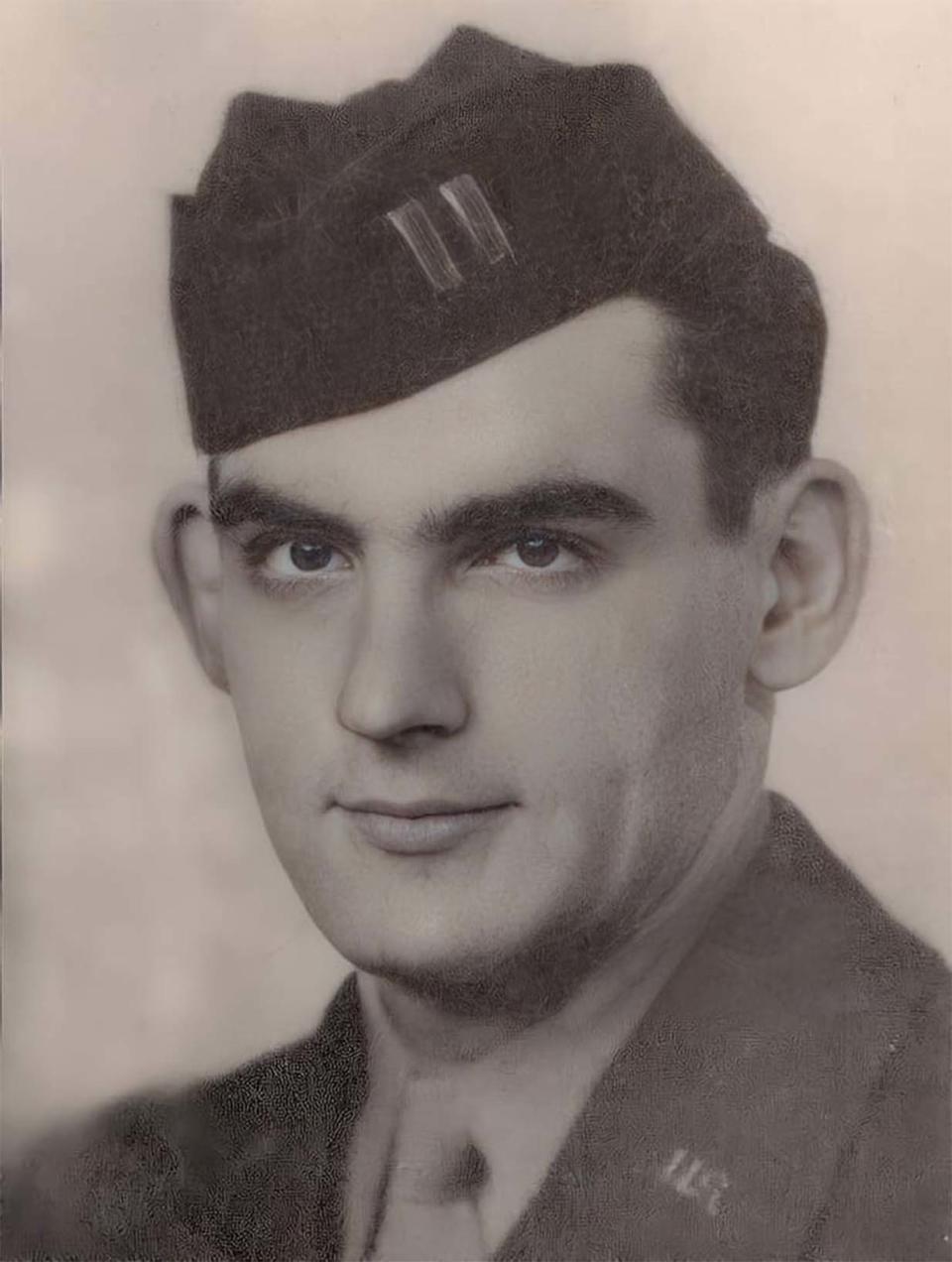Veterans column: Newark's Paul Massa directs naval bombardment of Utah Beach
On June 6, 1944, Paul Massa was out in front with the scouts as the infantry moved inland from Utah Beach. Forty-Nine years after that day, Massa continued the recording of his experience.
“One of our missions was to relieve units of the 82nd Airborne Division who had landed in this area. The few paratroopers that we found had had a rough time. They told us about German units murdering their men as they got tangled in their parachutes. There were also German units on the ground firing at the paratroopers, as they glided toward the earth. Many of the paratroopers never had a chance.
The first day in Normandy belonged to the rifleman and the machine gunner, ours and the Germans. The Germans were dug in and waiting for us. Our rifleman had to root them out and it was bloody business. Toward evening, the battalion went into a perimeter defense position for the night. It seemed to me that the Germans wanted to keep on fighting or else they just didn’t want us to get any sleep.

The next morning at 6:00 o’clock, the first battalion resumed its attack. We were headed for the village of E’mondeville, I could see a church steeple and I was sure the Germans were using it for an observation post. Now it was time for Naval gunfire support. We were assigned the U.S.S. Tuscaloosa for our fire mission. The Tuscaloosa was a heavy cruiser and had three turrets each with three eight-inch guns. I got on the radio and gave the necessary information and map coordinates and the command fire when ready. Almost immediately the navy radio operator said, ‘Salvo’ meaning the ship had fired one gun for adjustment. This first shell got everyone’s attention as it came screaming in. The explosion was loud and spoke with authority. It was bigger than anything we had seen or heard so far. Almost immediately, I could see smoke and debris rise up from the far side of the church. I got on the radio right away and ordered fire for effect; there was no need for any more adjustment, the first round was right where I wanted it. The ship fired all of its guns for three volleys. The radio operator said, ‘Salvo’ meaning that nine rounds were on the way. Then almost immediately, another ‘Salvo’ followed by a third ‘Salvo.’ That was really an impressive introduction to naval gunfire, so impressive that it scared the hell out of our own troops because they didn’t know what it was or where it was coming from. They felt a lot better after they learned it was the U.S. Navy.
We remained on the outskirts of the village until the following morning. During the night, the Germans shelled the field where I was every thirty minutes. The enemy shelling was an uncomfortable experience for me because shells were landing about 10 feet from the ditch where I was trying to sleep. I would have liked to have moved, but there was no way of knowing if any other place would be safer. The next morning at daylight, the U.S.S. Tuscaloosa dumped another three tons of high explosives on the village. After that, the first battalion rifleman moved through the village with no resistance.”
Massa had now been in France and the battle for about 48 hours, but his war was far from over.
Doug Stout is the Veterans Project Coordinator for the Licking County Library. You may contact him at 740-349-5571 or dstout@lickingcountylibrary.org. His book "Never Forgotten: The Stories of Licking County Veterans" is available for purchase at the library or online at bookbaby.com.
This article originally appeared on Newark Advocate: Vet column: Newark's Massa directs naval bombardment of Utah Beach

 money
money 